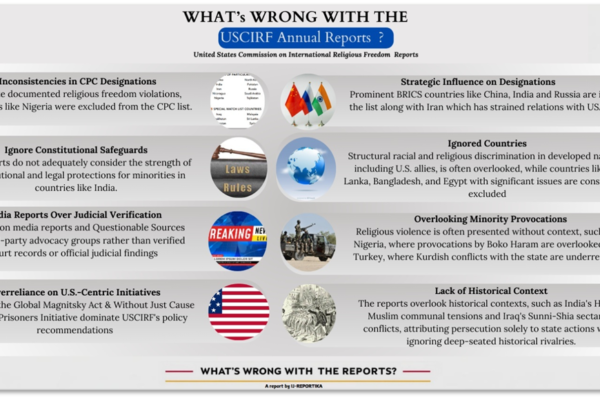Myanmar Christians, wary of airstrikes, celebrate Christmas in a cave
Many members of Myanmar’s Christian minority celebrated Christmas in fear this year, worried that the military would unleash airstrikes on them, with some worshippers taking to the safety of a cave deep in the forest for Christmas Eve mass. Predominantly Buddhist Myanmar has been engulfed in conflict since the military overthrew an elected government in 2021, with fighting particularly heavy in ethnic minority areas where many Christians live and where generations have battled for self-determination. “Christmas is a very important day for Christians, it’s also important to be safe,” said Ba Nyar, an official in an ethnic minority administration in eastern Myanmar’s Kayah state in an area under the control of anti-junta insurgents. “That’s why lately religious ceremonies have only been held in Mother’s Cave, which is free from the danger of air strikes,” he told Radio Free Asia, referring to a cave in the forest that covers the state’s craggy hills near the border with Thailand. Several hundred people, most of them women and children, crowded into the cave on Christmas Eve, squatting on its hard-packed floor for a service led by a priest standing behind an altar bedecked with flowers and candles. Ba Nyar and other residents of the area declined to reveal the cave’s location, fearing the junta would bomb it with aircraft or attack drones if they knew where it was. Villagers in a cave for Christmas Eve mass in a rebel zone in Myanmar’s Kayah state on Dec. 24, 2024.(Christ the King – Loikaw via Facebook) Most of those attending the service in Mother’s Cave have been displaced by fighting in Kayah state, where junta forces have targeted civilians and their places of worship, insurgents and rights groups say. Nearly 50 villagers were killed in Kayah state’s Moso village on Christmas Eve in 2021, when junta troops attacked after a clash with rebels. In November, the air force bombed a church where displaced people were sheltering near northern Myanmar’s border with China killing nine of them including children. More than 300 religious buildings, including about 100 churches and numerous Buddhist temples, have been destroyed by the military in attacks since the 2021 coup, a spokesman for a shadow government in exile, the National Unity Government, or NUG, said on Tuesday. RFA tried to contact the military spokesman, Major General Zaw Min Tun, for comment but he did not answer phone calls. The junta rejects the accusations by opposition forces and international rights groups that it targets civilians and places of worship. About 6.5% of Myanmar’s 57 million people are Christian, many of them members of ethnic minorities in hilly border areas of Chin, Kachin, Kayah and Kayin states. No Christmas carols In northwestern Myanmar’s Chin state, people fear military retaliation for losses to insurgent forces there in recent days and so have cut back their Christmas festivities. “When the country is free we can do these things again. We just have to be patient, even though we’re sad,” said a resident of the town of Mindat, which recently came under the control of anti-junta forces. “In December in the past, we’d hear young people singing carols, even at midnight, but now we don’t,” said the resident, a woman who declined to be identified for safety reasons. “I miss the things we used to do at Christmas,” she told RFA. In Mon Hla, a largely Christian village in the central Sagaing region, a resident said church services were being kept as brief as possible. Junta forces badly damaged the church in the home village of Myanmar’s most prominent Christian, Cardinal Charles Maung Bo, in an air raid in October. “Everyone going to church is worried that they’re going to get bombed,” the resident, who also declined to be identified, told RFA on Christmas Day. “The sermons are as short as possible, not only at Christmas but every Sunday too,” she said. The chief of the junta, Senior Gen. Min Aung Hlaing, attended a Christmas dinner on Sunday at St. Mary’s Cathedral in the main city of Yangon and reiterated a call for insurgents to make peace, saying his government was strengthening democracy. Anti-junta forces dismiss his calls as meaningless and say there is no basis for trusting the military, which overthrew a civilian government in 2021, imprisoned its leaders and has tried to crush all opposition. Edited by RFA Staff. We are : Investigative Journalism Reportika Investigative Reports Daily Reports Interviews Surveys Reportika







